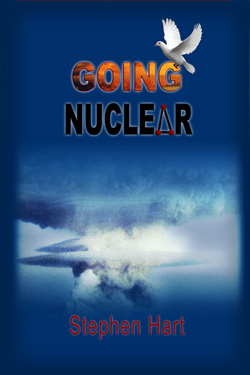Conspiracy
“Do you really believe what you’re saying? You sound just like one of those crazy conspiracy loons.” Diana rolled her eyes and shook her head before turning back to look at John.
“Hold on a minute,” John replied calmly. “Just ask yourself this: What U.S. President was elected twice, and both times one of his key opponents was gunned down before the election could take place? And I don’t mean figuratively. I mean bullets flying through the air literally taking out two political rivals.”
“I guess you mean…”
“And then ask yourself,” John continued, “what U.S. President recruited CIA operatives to join his election team, keeping in mind that among other things CIA operatives direct political assassinations.”
“Since you’re talking about Richard Nixon, I assume you mean Richard Nixon, but…”
“Yes, Richard Nixon.”
“So who exactly did Nixon have gunned down, according to your well-reasoned theory?”
“That’s easy, Bobby Kennedy in 1968 and George Wallace in 1972.”
“Really, Kennedy and then Wallace – bang, bang.”
“Right. In 1968, Bobby Kennedy had just won the California primary, which pretty much assured him of winning the Democratic nomination for President. But then suddenly he was shot in the head. He was popular, he had finally come out against the war in Vietnam, and there was a widespread belief that he was somehow destined to finish what his brother had started as President. But in an instant, all of that was wiped out. Hubert Humphrey ended up winning the Democratic nomination, and surprisingly enough the election turned out to be a close race. Nixon edged Humphrey out, but both men got approximately 40% of the popular vote. So if Kennedy had not been killed, if he had lived and gone on to do at least a little better than Humphrey, he would have probably been elected President instead of Nixon. You have to admit, the one person who benefited most from Bobby Kennedy’s assassination was Richard Nixon.”
“That doesn’t mean he did it.”
“I know, but he certainly had motive. Still, there’s a missing piece here. If Nixon and Humphrey each got 40% of the vote, who got the other 20%? The answer, of course, is George Wallace. And Wallace, who was to the right of Nixon politically, took most of his votes from Nixon, not Humphrey, which means if Wallace had not been in the election, Nixon would have probably taken about 60% of the votes and won in a landslide.”
“But a lot of wild things were happening in 1968 – race riots, student demonstrations against the war, the whole peace movement. That was a radical year.”
“Yes, but overall the country was still quite conservative. Nixon himself described his supporters as the ‘silent majority.’ And I have to think that the only reason Humphrey came as close as he did to defeating Nixon in 1968 was because Wallace managed to siphon off a significant portion of the conservative vote from Nixon. Wallace did take five southern states, you know.”
“I don’t know. It’s hard to say who did what or why.”
“Well if we move on to 1972, the question for the Nixon reelection campaign was: How is Wallace doing these days? And the answer was, even better than before. So once again Nixon found himself running against a Democrat on the left and Wallace threatening to make the race close by taking votes from the right. But then, guess what happened. Wallace took four bullets to the mid-section. Somehow he managed to survive, but the shooting took him out of the race. And predictably enough Nixon went on to win in a landslide, taking about 60% of the popular vote.”
“I know what you’re saying, but your evidence is still all circumstantial. And you are talking about a President of the United States showing a complete disregard for law and order.”
“True enough, but the blood was already flowing in Vietnam. And once the killing starts, a couple of more deaths probably don’t seem all that significant, especially if it’s for a good cause.”



